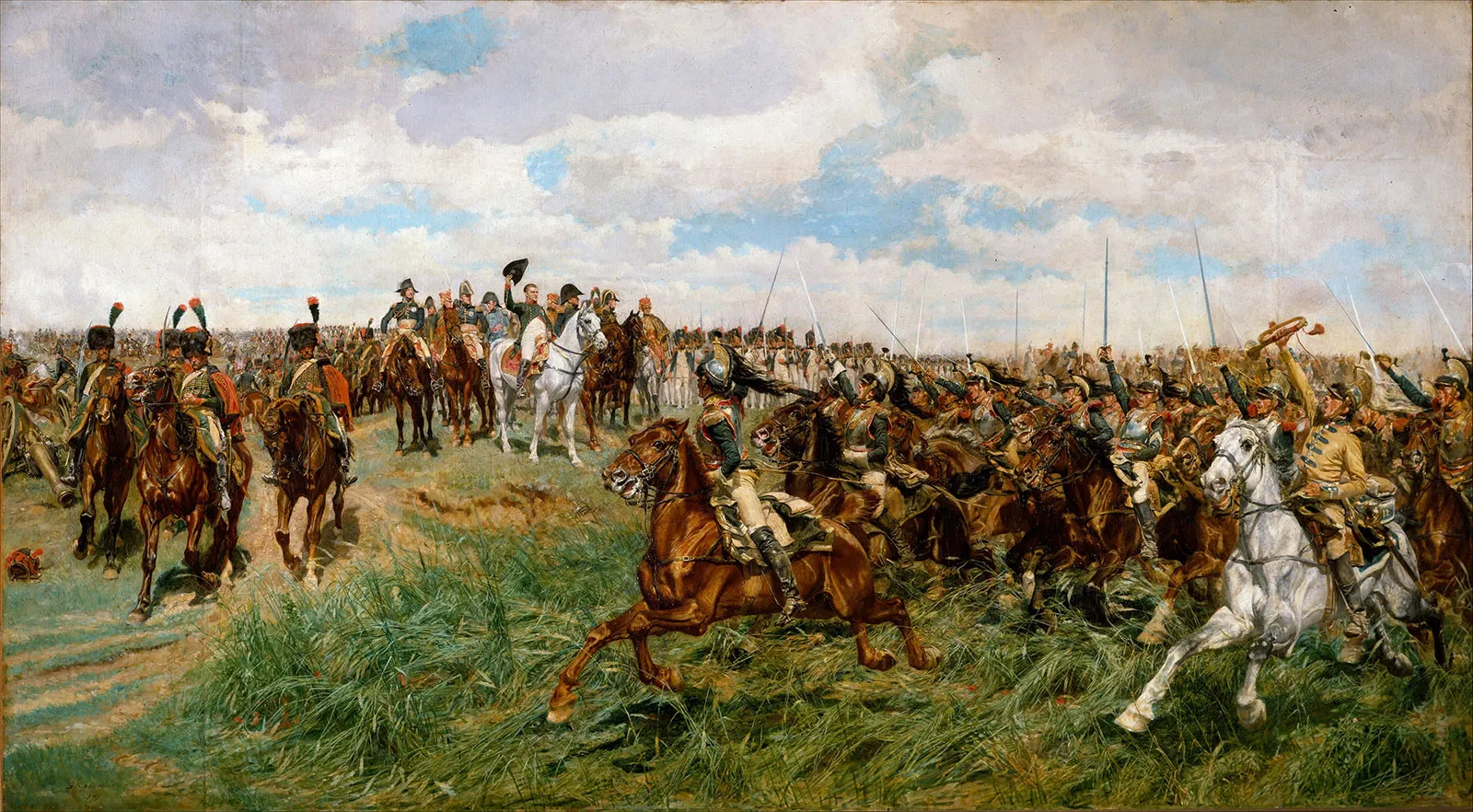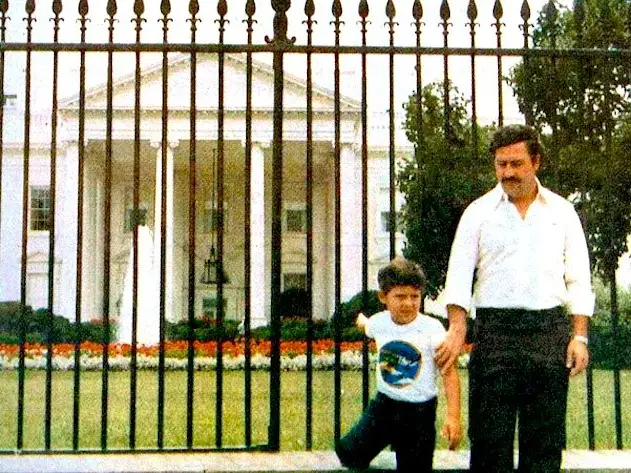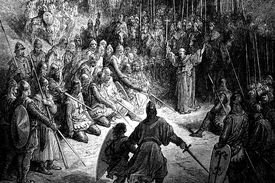Unveiling the Legends: Seven Most Influential Military Commanders in History
Discover the seven greatest generals of all time and explore their monumental impact on military history. Learn about their strategies, legacies, and achievements.
Alexander the Great: Conqueror of Worlds
Alexander the Great stands out as one of the most influential military commanders in history. His conquests, strategic brilliance, and ability to inspire loyalty among his troops have cemented his legacy as the greatest general of all time.
Early Life and Rise to Power
Born in 356 BC in Pella, Macedonia, Alexander was tutored by the philosopher Aristotle. His early exposure to Greek culture and military training set the stage for his future success. At just 20 years old, Alexander ascended to the throne following the assassination of his father, King Philip II.
- Education: Tutored by Aristotle
- Ascension: Became king in 336 BC
- Early Achievements: Quelling rebellions and consolidating power
Key Military Campaigns and Strategies
Alexander’s campaigns stretched from Greece to Egypt and into India. His most notable battles include:
- Battle of Granicus (334 BC): Defeated the Persian forces in Asia Minor.
- Battle of Issus (333 BC): A decisive victory against the Persian King Darius III.
- Siege of Tyre (332 BC): A seven-month siege showcasing his tactical ingenuity.
Alexander’s use of the phalanx formation and his adaptability on the battlefield were revolutionary. His ability to integrate diverse military strategies and his use of psychological warfare ensured his dominance.
Legacy and Impact
Alexander’s empire spread Greek culture and influence across three continents. His foundation of cities, such as Alexandria, became centers of culture and learning. The Hellenistic period, which followed his conquests, saw a fusion of Greek and Eastern cultures that shaped the ancient world.
“I am indebted to my father for living, but to my teachers for living well.” — Alexander the Great (Source: Wikipedia)
Napoleon Bonaparte: Master of Modern Warfare
Napoleon Bonaparte is renowned for his tactical genius and the extensive reforms he implemented, making him a pivotal figure in modern military history.
Revolutionary Beginnings
Napoleon’s rise began during the French Revolution, where his military prowess quickly elevated him to prominence. By 1799, he had become the First Consul of France and later declared himself Emperor in 1804.
Major Battles and Tactical Innovations
Napoleon’s major battles include:
- Battle of Austerlitz (1805): Often regarded as his greatest victory, showcasing his ability to outmaneuver and decisively defeat larger forces.
- Battle of Waterloo (1815): His final defeat, leading to his exile on Saint Helena.
Napoleon’s innovations in military strategy included the use of corps systems and fast-moving warfare, which are studied in military academies to this day.
Downfall and Historical Impact
Napoleon’s downfall was marked by his defeat at Waterloo and his subsequent exile. Despite this, his reforms in the Napoleonic Code had a lasting impact on legal systems around the world.
“Victory belongs to the most persevering.” — Napoleon Bonaparte (Source: Wikipedia)
Genghis Khan: The Mongol Empire Builder
Genghis Khan, originally named Temujin, united the Mongol tribes and established the largest contiguous empire in history.
Unification of the Mongol Tribes
Genghis Khan’s early life was marked by hardship, but his strategic brilliance and alliances allowed him to unite the disparate Mongol tribes.
Conquests and Military Tactics
His military campaigns were characterized by:
- Mobility: Utilization of highly mobile cavalry.
- Psychological Warfare: Techniques to instill fear and disrupt enemy morale.
Genghis Khan’s conquests spread across Asia and into Europe, impacting global history and trade routes.
Lasting Influence on the World
The Mongol Empire facilitated cultural exchange and trade between the East and West. Genghis Khan’s administrative innovations and legal codes had a profound effect on the regions he conquered.
“It is not the strength of the army that matters, but the strength of the leader who leads it.” — Genghis Khan (Source: Wikipedia)
George Washington: Founding Father and General
George Washington played a crucial role as the commander-in-chief of the Continental Army during the American Revolutionary War and as the first President of the United States.
Leadership in the American Revolution
Washington’s military leadership was marked by:
- Strategic Patience: His ability to keep the Continental Army intact despite numerous setbacks.
- Key Victories: The pivotal Battle of Yorktown (1781), leading to British surrender.
Legacy as a Founding Father
Washington’s leadership extended beyond the battlefield. As the first President, he set precedents for the office and helped establish the new nation’s government.
Influence on Modern Military Leadership
Washington’s emphasis on moral leadership and discipline continues to influence military leadership today.
“The harder the conflict, the greater the triumph.” — George Washington (Source: Wikipedia)
Julius Caesar: The Roman General and Statesman
Julius Caesar was a military and political leader whose actions led to the fall of the Roman Republic and the rise of the Roman Empire.
Military Campaigns and Conquests
Caesar’s notable campaigns include:
- Gallic Wars (58-50 BC): Expanded Rome’s territories and secured his reputation as a formidable general.
- Crossing the Rubicon (49 BC): A decisive move that led to a civil war and ultimately his rise as dictator.
Political Maneuvering and Legacy
Caesar’s political reforms and centralization of power transformed Rome’s political landscape, laying the groundwork for the Roman Empire.
“I came, I saw, I conquered.” — Julius Caesar (Source: Wikipedia)
Ulysses S. Grant: Union General and President
Ulysses S. Grant was a key Union general during the American Civil War and later served as the 18th President of the United States.
Leadership During the Civil War
Grant’s military strategies led to significant Union victories, including:
- Battle of Vicksburg (1863): Secured control of the Mississippi River.
- Appomattox Court House (1865): The site of Robert E. Lee’s surrender, effectively ending the Civil War.
Presidency and Post-War Influence
As President, Grant worked on Reconstruction efforts and efforts to ensure civil rights for freed slaves. His presidency was marked by efforts to combat corruption and strengthen the Union.
“In every battle there comes a time when both sides consider themselves beaten, then he who continues the attack wins.” — Ulysses S. Grant (Source: Wikipedia)
Erwin Rommel: The Desert Fox
Erwin Rommel, known as the Desert Fox, was a German Field Marshal whose campaigns in North Africa during World War II earned him a reputation for tactical brilliance.
North African Campaigns
Rommel’s leadership in North Africa was marked by:
- Innovative Tactics: Effective use of blitzkrieg tactics in desert warfare.
- Notable Battles: Battle of El Alamein (1942), where his forces were ultimately defeated.
Legacy and Reputation
Rommel is remembered for his adherence to the Geneva Conventions and his tactical expertise. His reputation as a brilliant commander persists, despite his controversial role in the Nazi regime.
“In the end, all battles are won by the man who fights best.” — Erwin Rommel (Source: Wikipedia)
Summary of Main Characters
| General | Key Achievements | Legacy |
|---|---|---|
| Alexander the Great | Conquests across three continents | Spread of Greek culture, Hellenistic period |
| Napoleon Bonaparte | Revolutionary warfare, Napoleonic Code | Impact on military strategy, legal systems |
| Genghis Khan | Unification of Mongol tribes, vast empire | Cultural exchange, global trade routes |
| George Washington | Leadership in American Revolution, Presidency | Founding the U.S., modern military leadership |
| Julius Caesar | Gallic Wars, rise of Roman Empire | Political reforms, transformation of Rome |
| Ulysses S. Grant | Key Union victories in Civil War, Presidency | Reconstruction efforts, combatting corruption |
| Erwin Rommel | North African campaigns, tactical innovations | Tactical genius, controversial legacy |
References:
- Alexander the Great – Wikipedia https://en.wikipedia.org/wiki/Alexander_the_Great
- Napoleon Bonaparte – Wikipedia https://en.wikipedia.org/wiki/Napoleon
- Genghis Khan – Wikipedia https://en.wikipedia.org/wiki/Genghis_Khan
- George Washington – Wikipedia https://en.wikipedia.org/wiki/George_Washington






